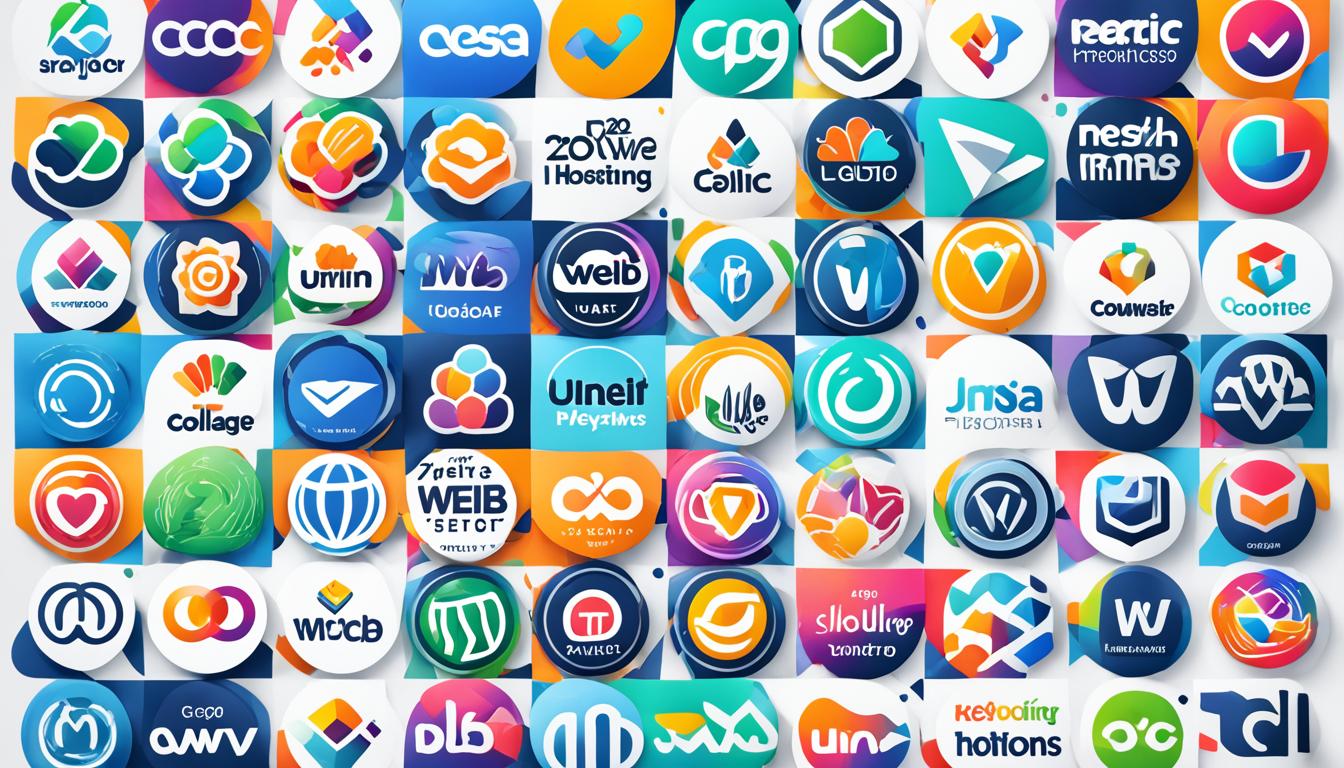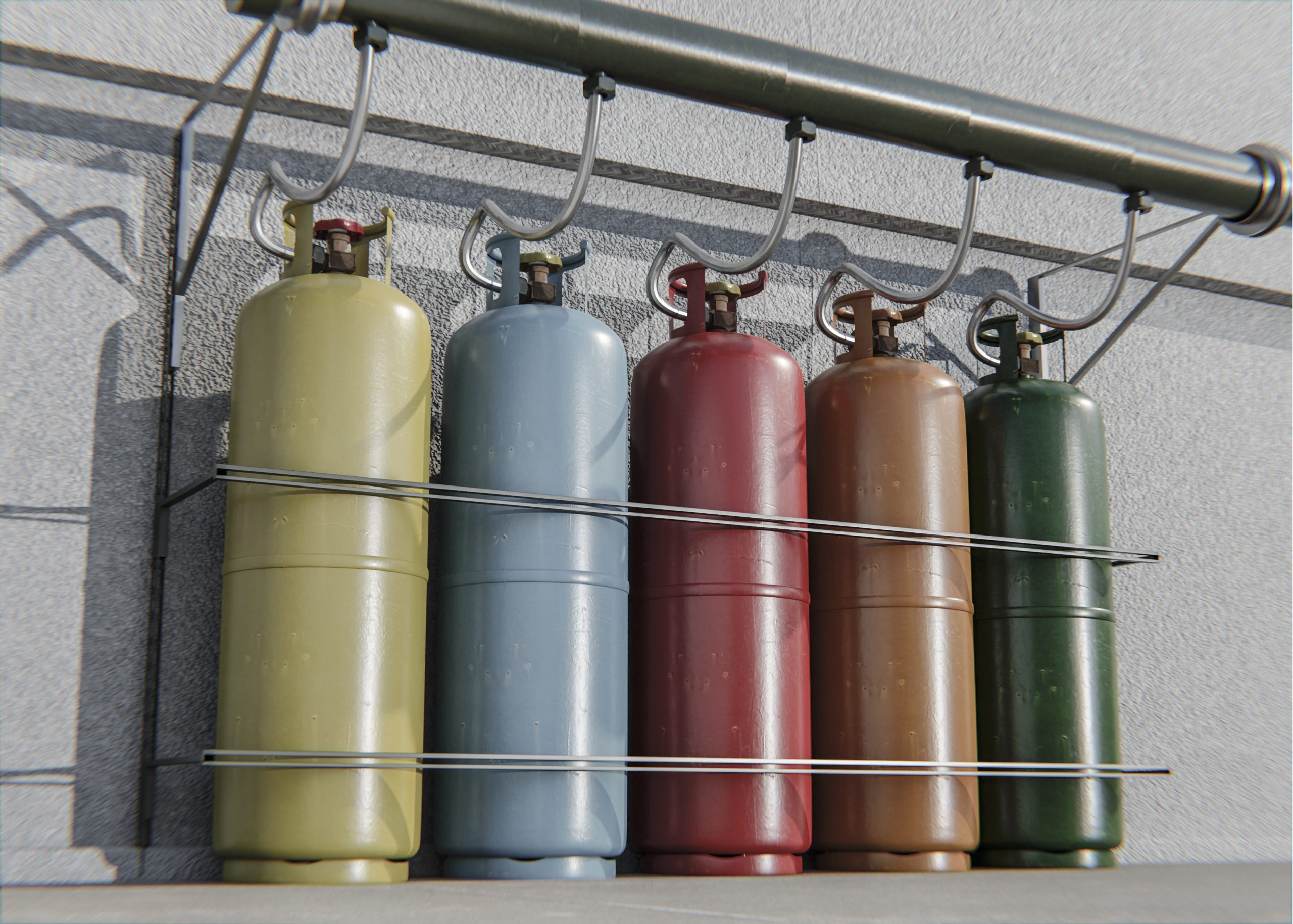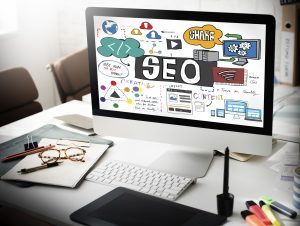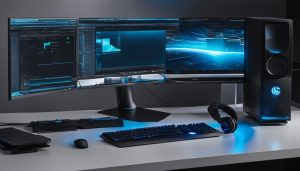Shopping Guide to Buying a Server for Your Small Business
Did you know that choosing the right server for your small business can have a significant impact on your operations? With the increasing reliance on technology, having a reliable server is crucial for smooth business processes and data management. But with so many options available, how do you navigate the server landscape to find the best fit for your needs?
Key Takeaways:
- Consider your specific business needs and requirements before purchasing a server.
- Understand the tasks a server can perform, such as secure file storage, web hosting, and running shared applications.
- Decide whether to buy or lease a server based on your budget and maintenance requirements.
- Pay attention to important server specifications like form factor, memory, processors, hard drive types, operating systems, and warranties.
- Choose the right server hardware, such as file servers, email servers, database servers, web servers, and application servers, based on your business requirements.
Do You Need a Server for Your Small Business?
As a small business owner, you may be wondering if investing in a server is necessary for your operations. Before making a decision, it’s crucial to consider the importance and benefits of having a server tailored to meet your business needs.
A small business server plays a crucial role in enhancing your day-to-day operations. From secure file storage to hosting web servers and running shared applications, servers offer a range of benefits that can greatly impact your business efficiency and productivity.
One of the key advantages of having a dedicated server for your small business is secure file storage. With a server, you can store and manage your important files in a centralized location, ensuring easy access and improved data security. This eliminates the need for multiple devices and external storage solutions, streamlining your file management process.
Additionally, having your own server allows you to host web servers, enabling you to have full control over your website and its performance. This is especially beneficial if your business relies heavily on online presence and e-commerce functionalities. A dedicated server ensures reliable website performance, better user experience, and increased customer satisfaction.
Furthermore, servers enable you to run shared applications that can be accessed and utilized by multiple users within your organization. This promotes collaboration, efficiency, and streamlined workflows, as everyone can access and work on the same applications and data in real-time, regardless of their physical location.
Lastly, servers are essential for regular data backups, ensuring that your critical business information is protected at all times. By setting up automated backup processes, you can safeguard your data against unexpected events such as hardware failures or data breaches. This provides peace of mind, knowing that your business information is secure and readily available for recovery if needed.
Assessing your business needs and the tasks you want the server to perform is key to determining whether investing in a server is the right decision for your small business. Consider the potential benefits of secure file storage, web hosting capabilities, shared application functionalities, and regular backups. Taking these factors into account can help you make an informed decision that aligns with your business goals and objectives.
| Benefits of Having a Server for Your Small Business |
|---|
| Secure file storage |
| Host web servers |
| Run shared applications |
| Maintain regular backups |
Buying vs. Leasing a Server for Your Small Business
When it comes to acquiring a server for your small business, you have two options: buying or leasing. Both options have their advantages and considerations, so it’s important to weigh them carefully based on your specific needs and budget.
If you choose to buy a server, it can be more cost-effective in the long-term. You have full ownership and control over the server, and you can customize it to suit your business requirements. However, keep in mind that buying a server involves higher upfront costs. You’ll need to consider your short-term budget and cash flow to ensure you can afford the initial investment.
On the other hand, leasing a server offers lower upfront costs, making it a more attractive option for businesses with limited budgets. Leasing allows you to access the latest server technology without a significant initial investment. This can be beneficial if your business requires frequent upgrades or if you want to test different server solutions before committing to a purchase. Additionally, leasing often includes maintenance and upgrades as part of the service agreement.
Consider the long-term costs and maintenance needs when making your decision. When buying a server, you’ll be responsible for maintenance and upgrades, either in-house or through a maintenance contract with a service provider. Leasing typically includes maintenance, which can save you time and money in the long run.
Ultimately, the choice between buying and leasing depends on your business’s unique requirements and financial situation. Take the time to evaluate your needs and budget before making a decision that aligns with the long-term goals of your small business.
Important Server Specifications to Consider
When purchasing a server, it’s crucial to take into account various specifications to ensure you choose the right one for your needs. Here are the key considerations:
Server Form Factor
The form factor of a server determines its physical shape and storage size. Common form factors include tower, rack-mountable, and blade servers. Consider the available physical space and storage requirements of your small business when choosing the form factor.
Server Memory Considerations
Server memory plays a vital role in performance. Consider the amount of installed memory and the scalability potential of the server. This will ensure that your server can handle your business’s workload and allow for future expansion if needed.
Server Processors
Processors are the heart of a server, responsible for processing data and performing tasks. When selecting a server, consider factors such as processor speed, type, quantity, and scalability. This will ensure optimal performance for your business applications and workloads.
Hard Drive Types
The type of hard drives in a server impacts its storage capabilities. Common hard drive types include SAS (Serial Attached SCSI) and SATA (Serial AT Attachment). Consider the speed, capacity, and reliability requirements of your business when choosing between hard drive types.
Server Operating Systems
Server operating systems determine the features and functionalities available to you. Popular options include Windows Server and macOS Server. Consider the specific needs of your small business and the compatibility of your applications when selecting a server operating system.
Server Warranties
Server warranties are essential for ensuring proper maintenance and support for your server. When purchasing a server, look for warranties that provide comprehensive coverage and support options. This will give you peace of mind and minimize potential downtime for your small business.
By considering these important server specifications, you can make an informed decision and choose a server that meets the unique needs of your small business.

Choosing the Right Server Hardware for Your Small Business
When it comes to finding the perfect server hardware for your small business, it’s essential to consider your specific needs and requirements. Different types of servers serve different purposes and offer unique benefits and features.
A file server is an excellent choice for secure file storage, allowing you to keep your important business documents and data safe and easily accessible. If messaging services are crucial for your business operations, an email server is the way to go, ensuring efficient communication within your organization.
To manage your data and applications effectively, a database server is essential. It provides a centralized platform for storage and retrieval, enabling streamlined operations. If you have a business website and require hosting capabilities, a web server paired with a database server is the right choice to ensure seamless website performance.
For improved performance and centralized application management, an application server is the ideal solution. It optimizes resource allocation, allowing your applications to run smoothly and efficiently.
Consider the form factor of the server hardware based on your available physical space. Tower servers are great for businesses with limited space, providing a compact and easily manageable solution. On the other hand, rackmount servers are designed for organizations with larger infrastructure needs, offering scalability and efficient rack space utilization. Blade servers are perfect for businesses seeking high-density computing capabilities while minimizing space requirements.
By choosing the right server hardware for your small business, you can optimize your operations and ensure the smooth functioning of your business-critical tasks.
FAQ
What are the benefits of purchasing a server for my small business?
How do I determine if my small business needs a server?
Should I buy or lease a server for my small business?
What server specifications should I consider before purchasing?
What types of server hardware are available for small businesses?
- How Strategic SEO Drove Growth for a CPAP E-commerce Brand - July 24, 2025
- Top 3 SEO Companies in Toronto: An Analytical Comparison - July 23, 2025
- SEO for Entry Door Services - April 24, 2025




![What Is a Host [Types & Other Things You Need to Know] What Is a Host [Types & Other Things You Need to Know]](https://webdoclab.ca/wp-content/uploads/2024/08/What-Is-a-Host-Types-Other-Things-You-Need-to-Know.jpg)
















Post Comment
You must be logged in to post a comment.